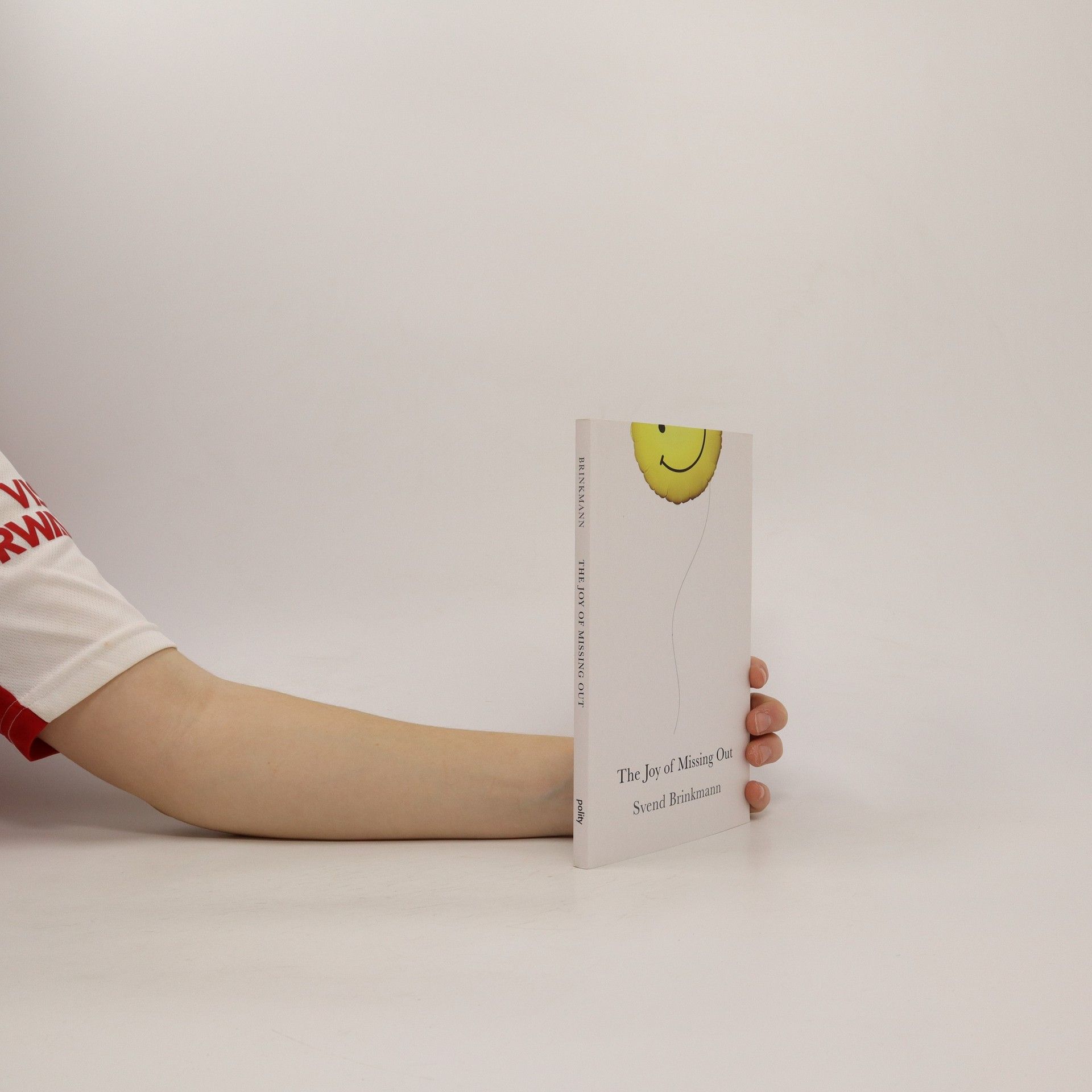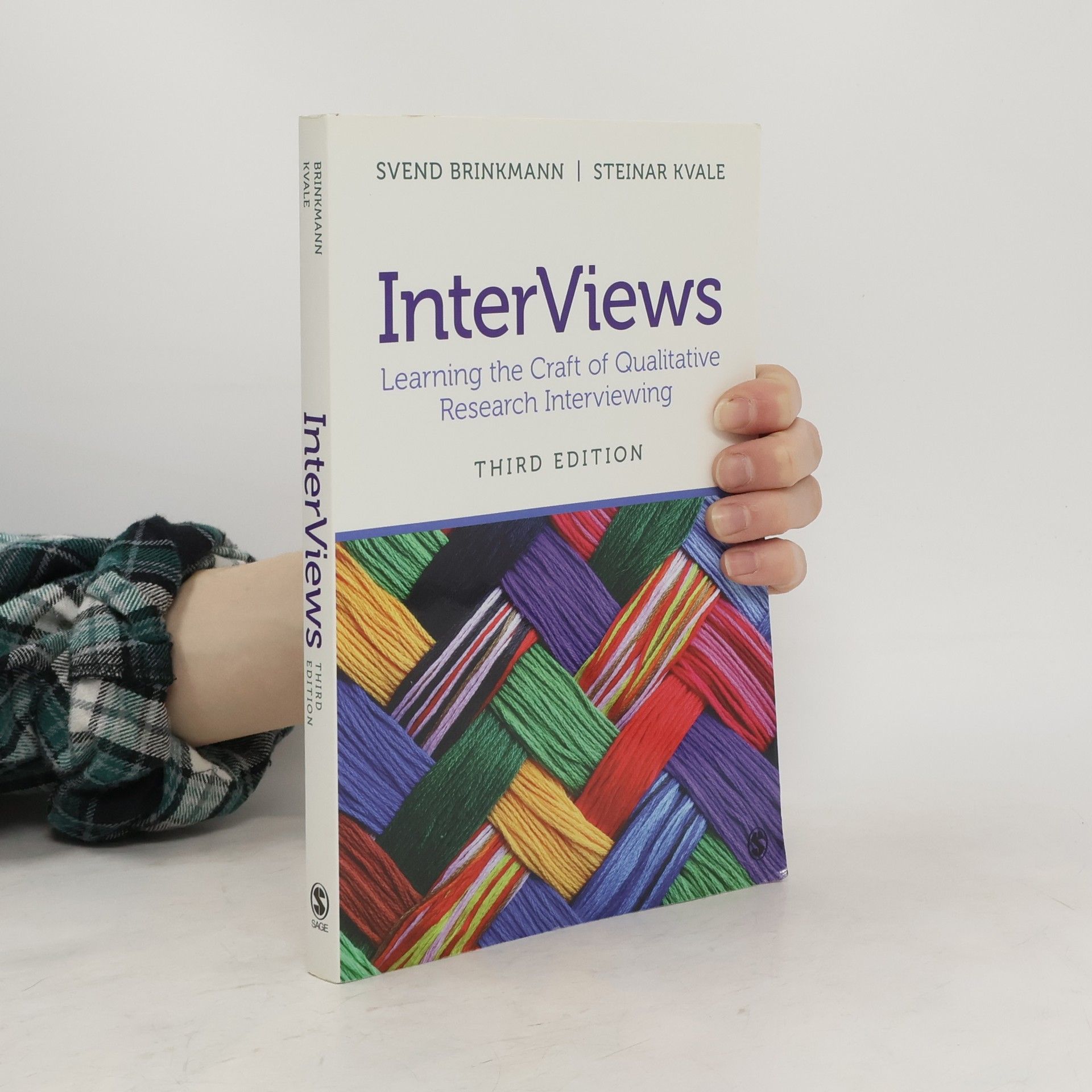Do mnoha jazyků přeložená kniha známého dánského psychologa pojednává o výhodách skromnějšího, uměřeného, nikoli na spotřebu zaměřeného života, který není založen na individualismu zahleděném do sebe a chrání jedince před manipulací agresivního trhu. Autor poukazuje na nereálnost nutkavé honby za štěstím, typické pro pozitivní myšlení prezentované v mnoha příručkách pro osobní růst, dokládá svou teorii množstvím zajímavých myšlenek moderních i starších filozofů, psychologů a sociologů a neotřelých termínů. Argumentuje z hlediska politického ve smyslu demokratické odpovědnosti za dění ve společnosti (jsme poháněni ke štěstí ve smyslu nekončícího množství možností, ale taková podoba štěstí je spíše zátěží), existenciálního (jsme posedlí touhou prožít toho co nejvíc, ale definuje nás nejen to, co děláme, ale i to, co neděláme), etického (žijeme v etickém zmatku, stále nové vjemy vedou k věčné nespokojenosti a mohou být i spouštěčem současné epidemie deprese), psychologického (brát si méně, než nám přísluší, má svou cenu) a estetického (hodnota spočívající v tom, že se dobrovolně vzdáme některých požitků).
Svend Brinkmann Knihy
Svend Brinkmann sa zameriava na témy, ktoré sa dotýkajú psychológie a spoločenských trendov. Jeho práca skúma súčasné tlaky na sebaprezentáciu a neustály rozvoj, kriticky sa stavia proti tomu, čo nazýva „tyraniou sebapopierania“ v snahe podporiť autenticitu a pevnosť v dnešnom rýchlo sa meniacom svete. Prostredníctvom svojich publikácií a mediálnych vystúpení oslovuje široké publikum, aby podnietil reflexiu nad moderným životom a jeho výzvami. Brinkmannova analýza psychologických a spoločenských javov ponúka hlbšie porozumenie tomu, ako sa môžeme lepšie orientovať v zložitom prostredí.

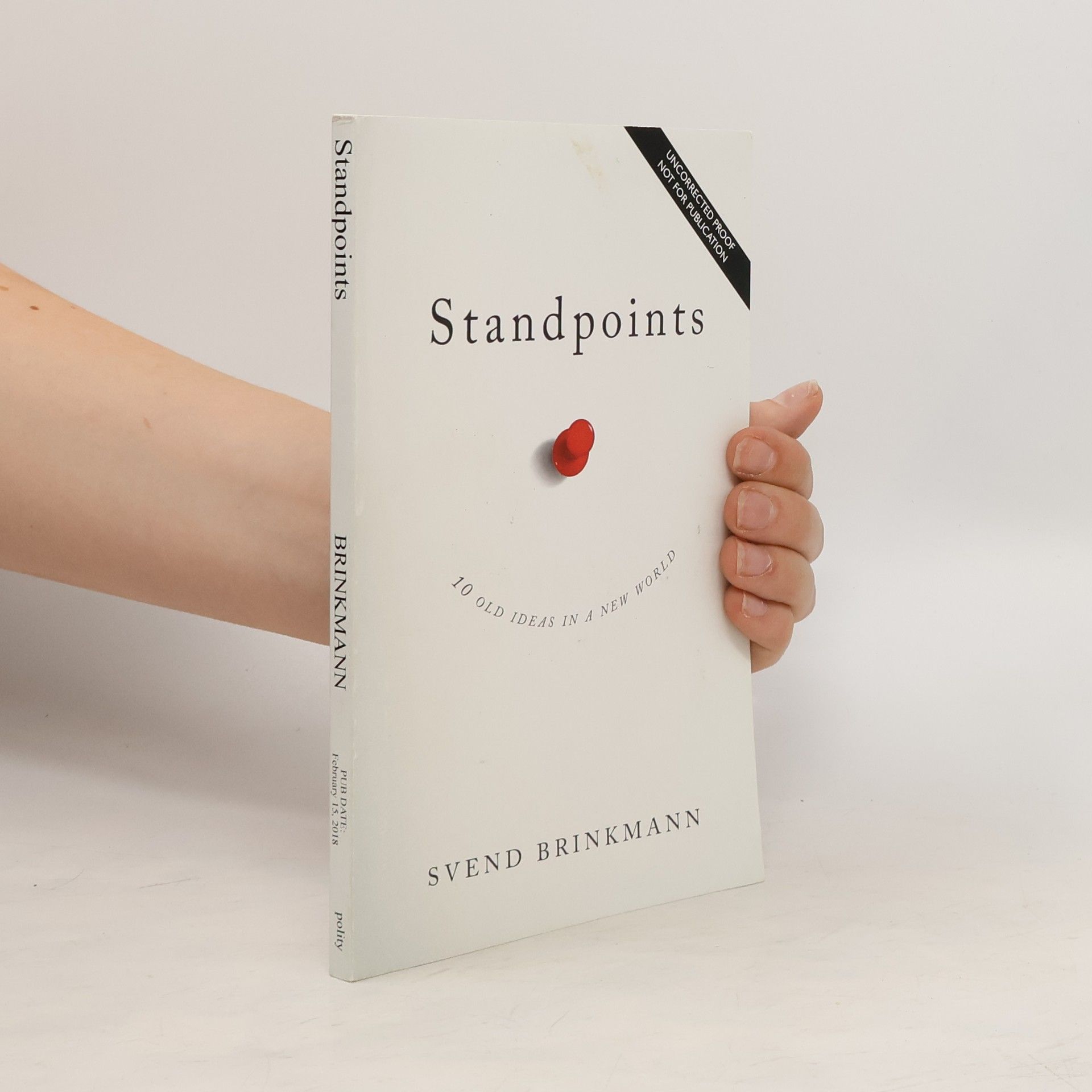



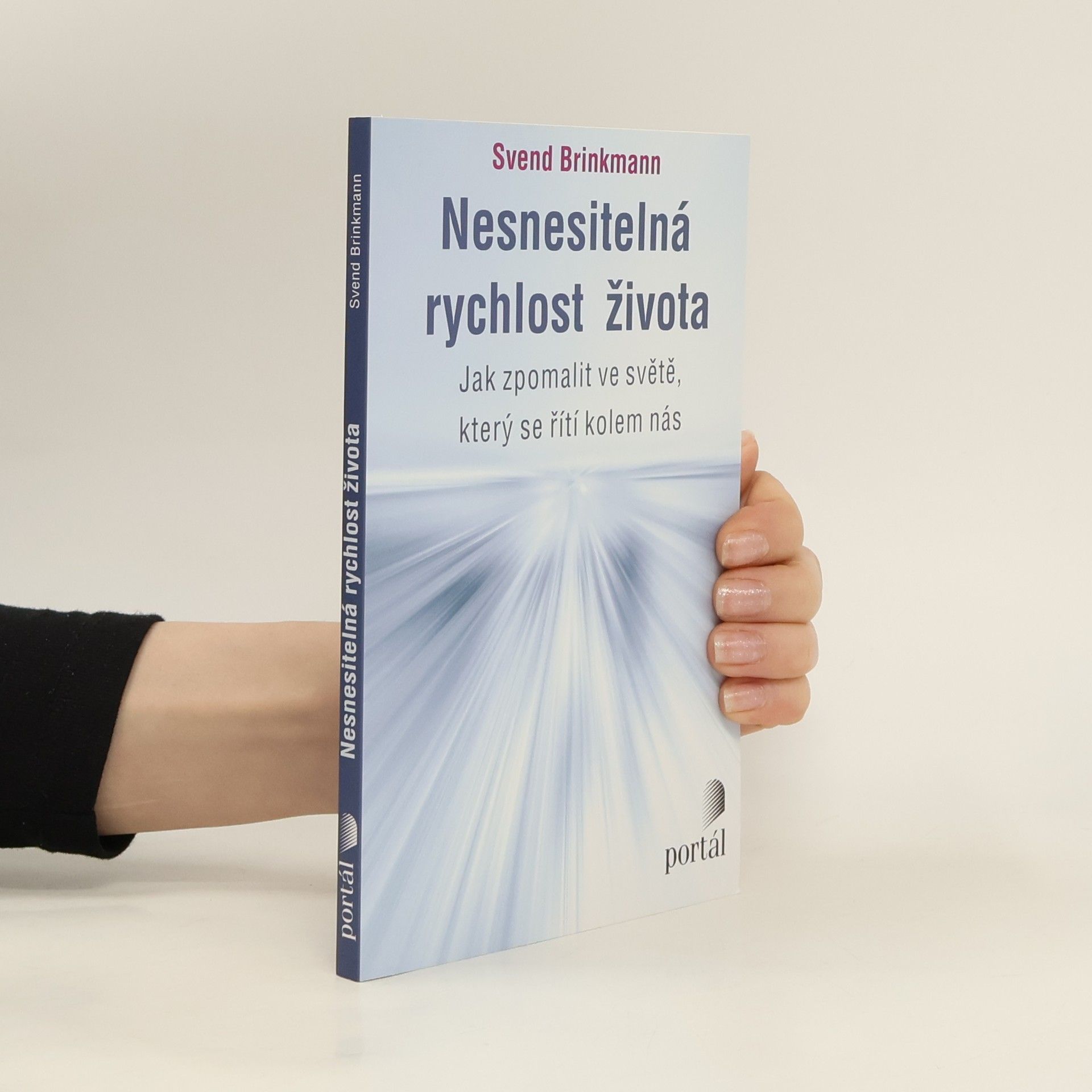
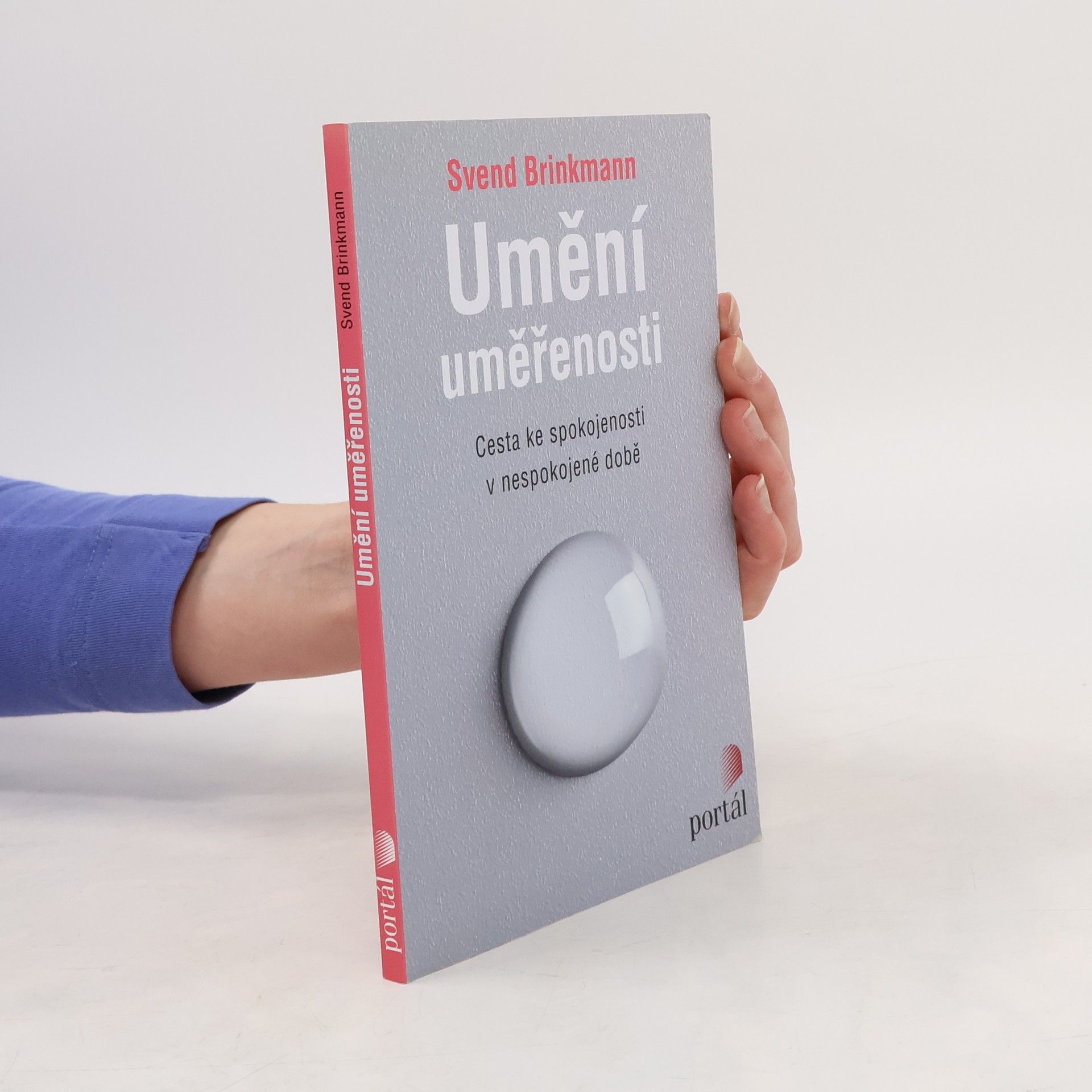
Nesnesitelná rychlost života. Jak zpomalit ve světě, který se řítí kolem nás
- 144 stránok
- 6 hodin čítania
Fastfood, speed dating, power naps, krátká terapie – všechny tato moderní výrazy naznačují, jaký je duch doby. Existuje už i aplikace na zrychlování čtení. Poskytuje však toto kvantitativní zrychlování, neustálá „sebeoptimalizace“, i vyšší kvalitu zážitku? Současnost nás nutí neustále se vyrovnávat s novými trendy a změnami a přizpůsobovat se jim. Klíčovým pojmem je „tekutá modernita“, i čas je vnímán jako neustále se přelévající substance a nejhorší, co se nám může přihodit, je nehybnost. Jak z toho ven? Svend Brinkmann pojal svou nejznámější knihu jako antipříručku osobního rozvoje, v níž nabízí sedm kroků, jak se bránit „tekutosti“ života a zakořenit ve své existenci. Doporučuje například negativní vizualizaci (oproti obvyklé pozitivní), těšit se ze svých omezení (oproti bezbřehému využívání možností, ovládat a potlačovat své emoce (ne je neomezeně projevovat) či uvažovat o smrtelnosti a těšit se z daru života (oproti dnes běžné tabuizaci smrti). Řešení často přebírá z myšlenek stoických filozofů. Jeho průvodce v sedmi krocích se tak pokouší zpochybnit některé etablované pravdy o pozitivním myšlení a rozvoji. Svend Brinkmann je profesorem psychologie na Katedře psychologie a komunikace v dánském Aalborgu. Zabývá se zejména filozofickými, morálními, etickými a kulturně kritickými tématy, o nichž napsal téměř dvacet knih. V Portále vyšla jeho kniha Umění uměřenosti.
Diagnostic Cultures
A Cultural Approach to the Pathologization of Modern Life
- 154 stránok
- 6 hodin čítania
The book explores the evolution of diagnostic cultures through empirical case studies of psychological conditions like depression and ADHD. It employs cultural-psychological and sociological analyses to examine how these diagnoses reshape existential, moral, and political issues into individual psychiatric concerns. This critical inquiry raises questions about the implications of such transformations on society and individual identity.
Grief
- 208 stránok
- 8 hodin čítania
Brinkmann yet again offers a brilliant and illuminating account of one of the core components of human experience - grief --
How are Christians capable of believing? Is it faith or delusion? Or is there something wrong with me? I do not believe in spirits, gods, miracles, resurrection or eternal life. But I will seek to cast off my prejudices and give God a chance. At least for a year. Danish writer Svend Brinkmann spent a year with God, exploring faith and religion through the eyes of a sceptic. Each month, from January to December, he grappled with questions that had nagged at him since he was a child: Why does God let the innocent suffer? Does science disprove the existence of God? Does faith make you a better person? Can you doubt and still believe? It became a year of deep reflection and surprising revelations that challenged the bounds of his scientific worldview and led him to a new appreciation of faith and its place within a secular, mostly fulfilled life.
Self-help gurus, life coaches and business consultants love to tell us that we must strive for constant self-improvement to realize our full potential and become truly happy. But it doesn't seem to work - for many of us, life still seems hollow and meaningless. So focused are we on personal development and material possessions that we've overlooked the things that make life truly fulfilling and worthwhile. So how do we figure out what's really worth striving for? In this compelling follow-up to his bestselling book Stand Firm, Danish philosopher and psychologist Svend Brinkmann shows us that the important things in life are those with intrinsic value, like goodness, freedom, truth and love. We should stop asking 'what's in it for me?', and turn our attention outwards to our friends, families and communities. By putting others first and embracing these unconditional principles, or standpoints, he argues, we can find a more meaningful and sustainable way of living.
A defining feature of being human is our ability to think. We refer to ourselves, after all, as homo sapiens. But in a world where experiencing and achieving as much as possible is the number one preoccupation, there is little room for reflection. Technology is also making everything easier, eroding the need for us to think at all. Of course deep, critical thinking can be difficult, sometimes painful, and it demands time. But it is fundamental to our well-being. In this new book, bestselling philosopher and psychologist Svend Brinkmann argues for a return to the thoughtful life, where we learn to think well, to think deeply, to lose ourselves in reverie and tune in to our inner voice. By spending time in our thoughts and letting them wander freely, we will discover that thinking is one of the most enriching things we can do in life – and one of the most human too.
The Joy of Missing Out
- 128 stránok
- 5 hodin čítania
'Because you're worth it', proclaims the classic cosmetics ad. 'Just do it!' implores the global sports retailer. Everywhere we turn, we are constantly encouraged to experience as much as possible, for as long as possible, in as many ways as possible. FOMO - Fear of Missing Out - has become a central preoccupation in a world fixated on the never-ending pursuit of gratification and self-fulfilment.But this pursuit can become a treadmill leading nowhere. How can we break out of it? In this refreshing book, bestselling Danish philosopher and psychologist Svend Brinkmann reveals the many virtues of missing out on the constant choices and temptations that dominate our experience-obsessed consumer society. By cultivating self-restraint and celebrating moderation we can develop a more fulfilling way of living that enriches ourselves and our fellow humans and protects the planet we all share - in short, we can discover the joy of missing out.
Focusing on the craft of interviewing, this book guides readers through the landscape of interview research. It outlines various paths learners can take to achieve their research goals while offering conceptual aids and practical toolboxes to enhance their interviewing skills. The approach is designed to facilitate a deeper understanding of the research process, making it accessible for those looking to master the art of interviewing.
Pfeif drauf!
Schluss mit dem Selbstoptimierungswahn
Der moderne Mensch optimiert sich unermüdlich durch Life-Coachings, Workshops und Diäten, getrieben vom Glauben an Fortschritt und Erfolg. Der dänische Psychologe Svend Brinkmann kontert diese Entwicklung mit Witz und Verstand, indem er uns zeigt, wie wir verloren gegangene Werte wie Standhaftigkeit, Zufriedenheit und Glück zurückgewinnen können. Die Anforderungen der Gesellschaft und des Einzelnen führen zu Stress, Burnout und Depressionen. Das Streben nach Selbstoptimierung und Erfüllung belastet nicht nur den Einzelnen, sondern auch soziale Beziehungen, die eigennützig und opportunistisch werden. Brinkmann fordert ein Ende des Selbstoptimierungswahns und rät, auf Life-Coachings und Diäten zu verzichten. Das Geheimnis eines glücklichen Lebens liegt nicht im ständigen Streben nach Verbesserung, sondern in der Rückbesinnung auf andere und der Fähigkeit, Maß zu halten. In sieben Schritten zeigt er, wie wir dieses Ziel erreichen können: Hören Sie auf, in sich selbst hineinzublicken, fokussieren Sie sich auf das Negative, setzen Sie den Nein-Hut auf, unterdrücken Sie Ihre Gefühle, feuern Sie Ihren Coach, lesen Sie einen Roman und besinnen Sie sich auf die Vergangenheit. Brinkmanns amüsantes und scharfsinniges Werk bietet einen erfrischenden Ansatz gegen den Druck unserer Zeit.
